Heed warning signs of stroke
Stroke is the third leading cause of death in Malaysia. It also threatens one's physical, psychological and economic status, making stroke a substantial national burden. Learn more about the disease in an article titled 'Heed warning signs of stroke' by Dr. Kallyan K. Debnath from the Medical Education Unit of AIMST University. The article got featured in the 'Letters to the Editor' column of NST on 22 October 2022. Click here to read.
Let’s sleep our way to good health
Sleeping is a basic human need, like breathing, eating and drinking. Yet many of us consider sleeping a luxury. Dr. Madhumita Sen, Deputy Director of the Clinical Skills Centre at AIMST University's Faculty of Medicine, has enlisted several damaging effects caused by sleep deprivation in an article titled 'Let's sleep our way to good health.' The article got featured in the columnist section of NST on 22 October 2022. Click here to read.
Life’s Simple 7
Dr. Madhumita Sen from the Clinical Skills Centre (CSC) of AIMST University has enlisted seven rules for boosting cardiovascular health based on the 'Life's Simple 7' plan. The plan uses seven important domains for cardiovascular health. Learn more about it in a concise write-up featured in the 'Letters to the Editor' column of NST on 12 October 2022. Click here to read.
Budget tightening will have to wait
The 2023 budget presented by Finance Minister YB Tengku Datuk Seri Zafrul Abdul Aziz allocated RM372 billion for the year ahead. As predicted, the budget is an expansionary one and the second biggest in the annals of Malaysia's budgeting. Learn more on the four key purposes of the 2023 budget in an article by the Vice-Chancellor of AIMST University, Professor Datuk Dr. John Antony Xavier. The article, 'Budget tightening will have to wait,' got featured in the columnist section of NST on 11 October 2022. Click here to read.
What Technologies are Used in Dentistry?
 Modern dental technology has made it possible to find modern solutions to traditional dental problems.
The Bachelor of Dental Surgery and other dentistry courses offered by dental university in Malaysia provide people with cutting-edge dental treatment that may be completed in a more effective and efficient manner.
It could seem that not much has changed in dental technology to a casual observer. However, the area of dentistry is undergoing constant change because of advancements in dental technology.
As newer technologies emerge and develop, an emphasis is placed on producing aids and equipment along with developing methods that a dentist may employ to aid in the early detection, prevention, diagnosis, and treatment of dental problems and illnesses.
A modern dentistry course provides access to a wide range of dental technologies, many of which have advantages that can make the treatment more comfortable and easier for patients.
A list of dental technology aids taught as part of dentistry courses is below.
Modern dental technology has made it possible to find modern solutions to traditional dental problems.
The Bachelor of Dental Surgery and other dentistry courses offered by dental university in Malaysia provide people with cutting-edge dental treatment that may be completed in a more effective and efficient manner.
It could seem that not much has changed in dental technology to a casual observer. However, the area of dentistry is undergoing constant change because of advancements in dental technology.
As newer technologies emerge and develop, an emphasis is placed on producing aids and equipment along with developing methods that a dentist may employ to aid in the early detection, prevention, diagnosis, and treatment of dental problems and illnesses.
A modern dentistry course provides access to a wide range of dental technologies, many of which have advantages that can make the treatment more comfortable and easier for patients.
A list of dental technology aids taught as part of dentistry courses is below.
1. Air-Abrasion
An air-abrasion device is used as an alternative to a conventional dental drill to treat tiny cavities while sparing good tooth tissue and avoiding the need for local anaesthesia. By blasting pellets made of air and aluminium oxide, air abrasion enables the exact elimination of deterioration. Through access to challenging locations like those in between teeth, air-abrasion dental technology can also be utilized to assist in restoring outdated dental restorations.2. CAD/CAM
Dental restorations may be made using computerized dental technology thanks to CAD/CAM (computer-aided design, computer-assisted manufacture) technology. A dentist may use CAD/CAM in the office to finish dental restorations that would typically take two visits to complete in one appointment. Inlays, onlays, porcelain veneers, dental crowns, and dental bridges are a few examples of these procedures.Solutions for caries detection:
To ensure that all tooth decay has been treated from an afflicted region, a liquid red dye known as a caries detection solution is spread on the tooth. The plaque-disclosing tablets that are used after brushing to show if any places were missed or weren't properly cleaned are quite similar to this solution.3. CAT Scan
Implantologists (dentists who have a Bachelor of Dental Surgery) can inspect and manipulate the jawbone or surrounding bone structure more precisely with the use of 3-D CAT scan dental technology. With developments in dental technology, implants have replaced dentures as the treatment of choice for tooth replacement.Implants in the Teeth
This dental technology is constantly evolving. Dentists who have undergone a dentistry course have the ability to use mini implants to support small or minor tooth replacements.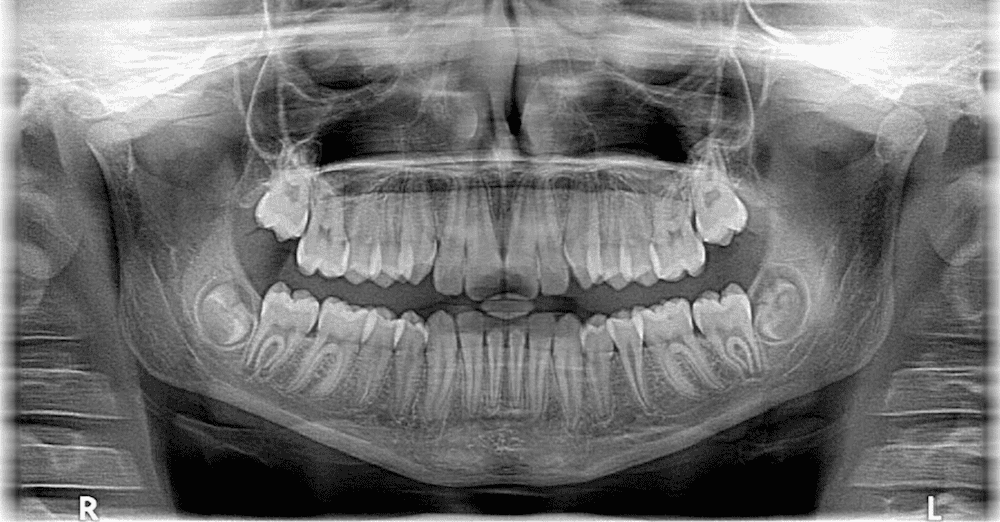
4. Digital X-rays
Dental pictures can be captured using digital radiography using a sensor that projects the image onto a computer screen. In addition to reducing radiation exposure, digital X-rays can be more comfortable than traditional X-rays. One "paper" X-ray is about equivalent to four digital radiographs.5. Handpieces with Electricity
Electric handpieces can be used with rotary cutting tools and can help with cleanliness measures. Smooth material distribution provided by electric handpieces reduces stress on the sound tooth structure. They are frequently quieter.6. Intra-Oral Camera
A precise picture of your teeth and their supporting structures may be created with intra-oral cameras. This dental technology makes it possible for people, dentists, and any potential dental technology technician to work on one tooth flaw at a time. One may learn more about dental hygiene procedures, such as where to concentrate when cleaning the teeth, with the use of intra-oral cameras.7. VELscope
VELscope is a revolutionary new FDA-approved oral cancer screening dental technology that employs incandescent light to detect abnormalities that would otherwise be invisible to the human eye. Oral surgeons also utilize VELscope to assist in locating unhealthy tissue near lesions and establishing the ideal margin for surgical excision.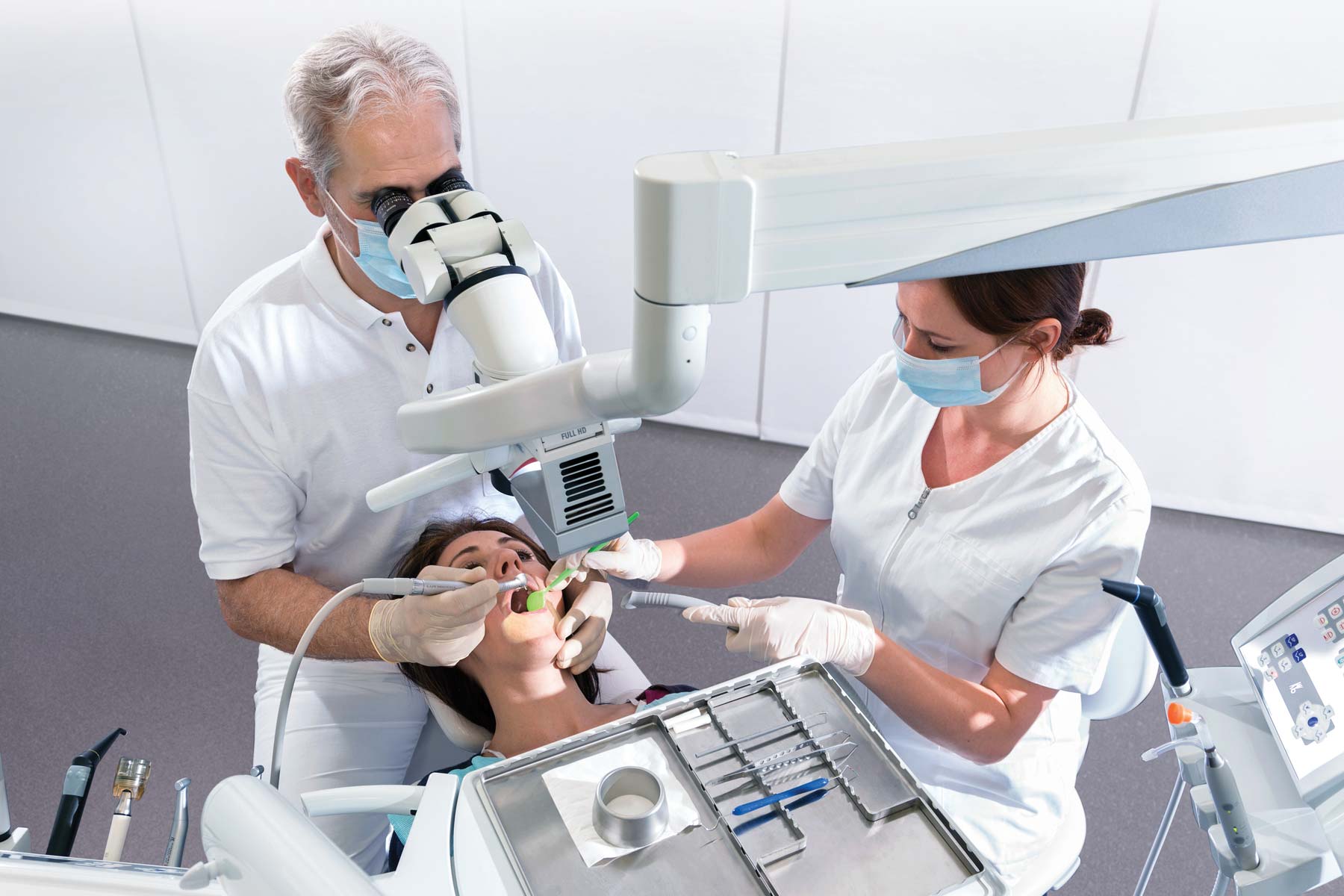
8. Microscope
One of the most recent developments to help dentists improve their acute eyesight is the use of microscopes. Dental technology professionals can use microscopes to precisely and accurately spot microcracks, weakening tooth structure, and the presence of dental nerves. Additionally, using a microscope allows for more precise removal of damaged tooth structure while protecting healthy tooth structure.9. Laser Dentistry
Laser dental technology is utilized in a variety of dental operations to increase effectiveness and reduce pain, including cavity filling, sensitivity reduction, tumor removal, and teeth whitening. In order to prevent any more complications or issues, laser dentistry is quick, painless, and capable of successfully eradicating any type of germ while the process is being done.All in All
Dental health is one of the most crucial aspects of healthcare, and future disruptive breakthroughs will increase dental technology options with more dentistry courses in a dental university in Malaysia for either enhancing professional practices or enhancing patient oral health.Study Medicine in Malaysia – Benefits
 Many students from the scientific stream choose to pursue an MBBS course overseas each year.
Foreign students typically choose to study MBBS in Malaysia, which has, in the recent past, emerged as a preferred and popular destination to pursue a MBBS course and pursue a Bachelor of Medicine as a graduation degree.
Malaysia offers high-standard education in the MBBS course and scientific fields due to its integration of cutting-edge technology and world-class infrastructure. International students like to study medicine in Malaysia because it is affordable and offers good educational opportunities.
Therefore, one of the better places to pursue a degree in the medical field (Bachelor of Medicine) is a course in Malaysian universities, where students get in-depth knowledge of the vast subjects of the MBBS course from some of the best professors and teachers who have excelled in their profession.
Many students from the scientific stream choose to pursue an MBBS course overseas each year.
Foreign students typically choose to study MBBS in Malaysia, which has, in the recent past, emerged as a preferred and popular destination to pursue a MBBS course and pursue a Bachelor of Medicine as a graduation degree.
Malaysia offers high-standard education in the MBBS course and scientific fields due to its integration of cutting-edge technology and world-class infrastructure. International students like to study medicine in Malaysia because it is affordable and offers good educational opportunities.
Therefore, one of the better places to pursue a degree in the medical field (Bachelor of Medicine) is a course in Malaysian universities, where students get in-depth knowledge of the vast subjects of the MBBS course from some of the best professors and teachers who have excelled in their profession.
Why Study Medicine in Malaysia?
1. Quality Education
Moreover, Malaysian universities are consistently listed among the top 100+ institutions of higher learning worldwide. English is the language of teaching, which is convenient for everyone. An MBBS in Malaysia consists of a 6-year curriculum with a 5-year academic period and a year of internship in prestigious hospitals associated with universities. All Bachelor of Medicine courses have been authorized by MCI and WHO.2. Global Standard
Universities in Malaysia measure their MBBS course curricula against global norms. Universities in Malaysia, such as AIMST, provide greater patient care and personalized practice. One’s learning horizons and views will be expanded by the multidisciplinary programs and the chance to collaborate with the team.3. Affordability
Malaysia is a well-developed country for overseas students, especially those who want to study medicine in Malaysia. There are numerous universities, such as AIMST University, which provides a wide range of MBBS courses and other Bachelor of Medicine courses at prices that are far lower than those in other countries. In comparison to colleges in the United States, UK, Australia, and other countries, Malaysian institutions often charge relatively inexpensive MBBS course tuition rates. Malaysia's medical universities provide affordable education with a high level of quality. The MBBS course reduces the tuition costs for overseas students, easing their financial burden.4. Effective Teaching Methodology
A differentiator for students wanting to study medicine in Malaysia is an up-to-date, effective teaching methodology that is relevant to the actual everyday challenges doctors would face. Malaysian Universities put to use a variety of strategies to teach and educate students as part of their MBBS courses. These include cutting-edge learning tools, knowledgeable staff and professors, digital classrooms, exchange programs, and many more.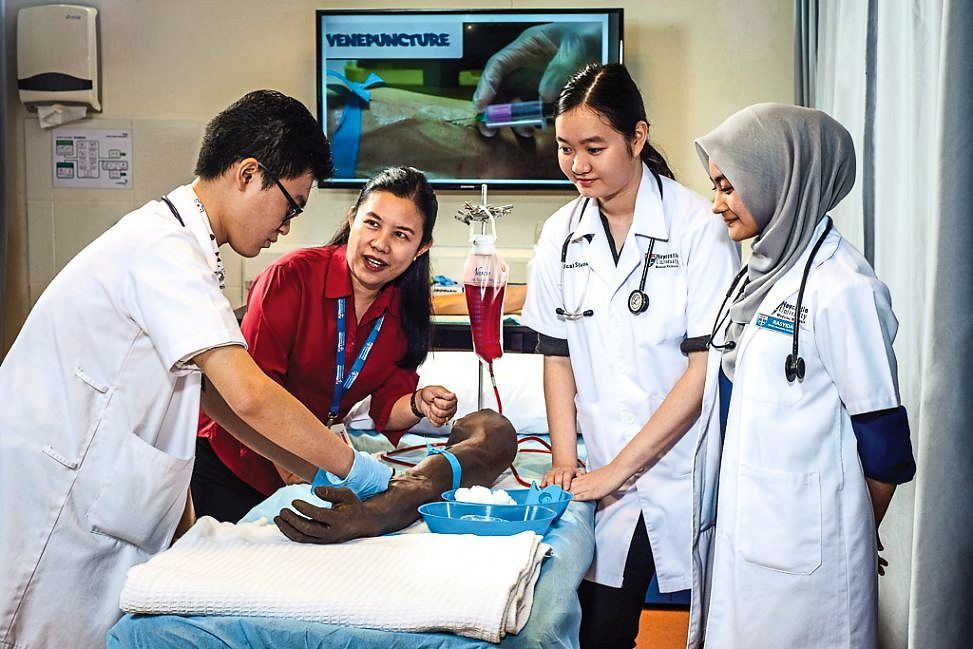
Why is Malaysia Preferred as a Destination to Study Medicine?
Most Malaysian universities offering an MBBS course have a simple and straightforward admissions procedure. It is generally acknowledged on a global scale, and student success rates are rising every year. In addition, the culture of Malaysia is very open and embracing of people from different and distinct cultures. This makes it easy for students to amalgamate within social circles.The Advantages of Studying an MBBS Course in Malaysia
Malaysian institutions provide the best comfort and high-quality education for those aspiring to study medicine in Malaysia. Universities provide programs for mentors and mentees. Malaysia has relatively low MBBS course costs and living expenses when compared to other countries. It is a location where men and women may travel and live safely. Malaysia is stable politically, economically, and socially, making it a preferred destination for overseas students, including medical students.How Much Does an MBBS Course Cost in Malaysia?
Studying medicine in Malaysia is cheaper than in other countries for both foreign and domestic students. All overseas students are required to pay the application and visa costs, as well as supplementary fees like health insurance. Each university and its affiliated institutions may have a different average length of study. Moreover, certain universities, such as AIMST University, are dedicated to providing MBBS course scholarships to students who achieve in the classroom. The annual tuition costs range from RM55,000 to RM110,000. The cost of living is between RM15,000 and RM20,000 annually to study medicine in Malaysia.Conclusion
Studying medicine in Malaysia comes with 7 diverse and distinctive advantages, as follows:- Universal medical scholastic principles
- Modest and inexpensive cost
- Low cost of living
- Excellent study environment
- Advanced training practices
- Pragmatic medical training and coaching
- Internationally recognized program and a medical degree
Computer Science or Information Technology: Which is Better?
 At some point in one's studies, it becomes necessary to decide what sort of career one wants to pursue. The two most distinct career options are Bachelor of Computer Science and bachelor management information systems.
Although it's simple to mix the two up, each of these disciplines calls for a certain set of abilities and a particular mindset.
Consider the fact that there are few distinctions between a Bachelor of Computer Science and a bachelor in management information systems. Degrees in computer science and information technology can be used to obtain work in the IT industry.
A Bachelor management information systems degree is concerned with the creation, use, administration, and maintenance of computers and information systems.
Working with hardware and software in information technology includes using things like CPUs, RAM, and hard drives (e.g., operating systems, web browsers, mobile applications).
Let us get to know about Bachelor of Computer Science and bachelor management information systems in brief.
Computer scientists creat, develop, and code all of the IT products and services, while information technology specialists and engineers from other fields install, test, run, and maintain them.
The creation and testing of software and software systems is the focus of Bachelor of Computer Science degree holders. Working with mathematical models, data analysis, security, algorithms, and computational theory are all aspects of a Bachelor of Computer Science course.
At some point in one's studies, it becomes necessary to decide what sort of career one wants to pursue. The two most distinct career options are Bachelor of Computer Science and bachelor management information systems.
Although it's simple to mix the two up, each of these disciplines calls for a certain set of abilities and a particular mindset.
Consider the fact that there are few distinctions between a Bachelor of Computer Science and a bachelor in management information systems. Degrees in computer science and information technology can be used to obtain work in the IT industry.
A Bachelor management information systems degree is concerned with the creation, use, administration, and maintenance of computers and information systems.
Working with hardware and software in information technology includes using things like CPUs, RAM, and hard drives (e.g., operating systems, web browsers, mobile applications).
Let us get to know about Bachelor of Computer Science and bachelor management information systems in brief.
Computer scientists creat, develop, and code all of the IT products and services, while information technology specialists and engineers from other fields install, test, run, and maintain them.
The creation and testing of software and software systems is the focus of Bachelor of Computer Science degree holders. Working with mathematical models, data analysis, security, algorithms, and computational theory are all aspects of a Bachelor of Computer Science course.

What Exactly is Computer Science?
In a Bachelor of Computer Science, the focus is more on what happens on the software and hardware sides of things. People in the field work with database systems, computer languages, application development, and computing theory. Their work is typically more individualized. It is a scientific and valuable approach to computation, programming, and other applications in computer science. That implies that they are aware of the motivations underlying computer programs. It also involves abstract ideas like the notion of computational complexity.Bachelor of Computer Science Degree Comparisons
One will do well in the computer science and IT fields if they have a bachelor's degree. People's time spent in a formal educational environment will aid in their development of the specific abilities and qualities that companies are looking for. Researchers observed that 89% of computer science employment required candidates to have a Bachelor of Computer Science degree after analyzing job ads. 84% of IT occupations share the same characteristics.An Overview of a Bachelor of Computer Science Degree:
A Bachelor of Computer Science degree will provide one with the training needed to succeed in the sector. Regular courses consist of:- Application Development for Mobile
- Business Intelligence Overview
- Technologies for Advanced Cloud Computing
- Software Developer for systems
- Software Engineer on the Go
- Engineer for Cloud Applications

Information Technology: What is it?
Bachelor Management Information Systems include every piece of technology a business employs, as well as how they operate it. Hardware, software, cloud computing, and storage are all included in this. IT professionals frequently connect directly with the people they are aiding while working with all or part of these components. Database administration, networking, data searching, and other more practical principles with more "real world" applications are included in the course on bachelor management information systems. In order to build a broader system and address certain business challenges, IT makes use of already-existing operating systems, software, and applications.An Overview of the Bachelor of Management Information Systems Degree
One may anticipate taking many engaging classes if they decide to pursue a bachelor of management information systems degree, including:- Operations Management for IT
- Hardware and infrastructure
- Support for enterprise applications.
- Specialist in computer support.
- Project manager for IT.
- The administrator of a network.
Final Takeaways
People simply can't go wrong when deciding between a degree in bachelor management information systems and one in Bachelor of Computer Science. It actually relies on their individual abilities and interests. Be it whichever degree one opts for, a graduation in one of the degrees would pave the path for a bright future.Biotechnology Trends to Follow in 2023
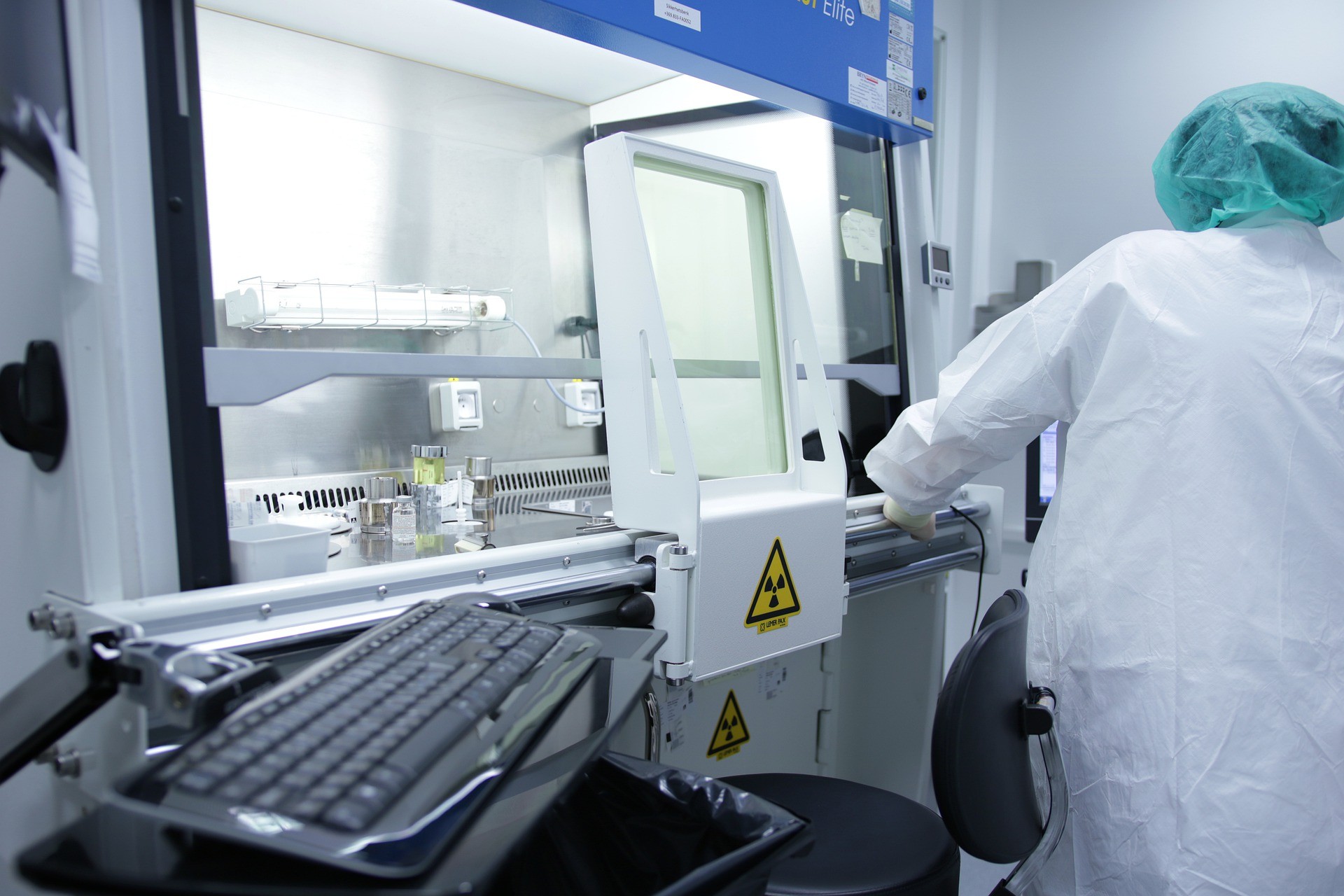 Technology has always helped humanity out of difficult situations. The usefulness of biotech products mushrooming as part of biotechnology, like anti-viral vaccinations, vitamin supplements, or genomic analysis, is a prime illustration.
The biotechnology industry has had a huge impact on the healthcare sector, and that's why diploma in biotechnology and Bachelor of Biotechnology Courses are trending.
Globally, $16.8 billion was spent on private biotechnology development in 2018 by venture capital firms. By 2025, the value of the worldwide biotechnology market is anticipated to be $727.1 billion.
At the beginning of this decade, AI was used in healthcare for things like data analysis, vaccine creation, and medical diagnosis.
In order to maximize productivity, the biotech sector is demanding more employees who have a degree of Bachelor of Science in Biotechnology and are familiar with trends like automation, data analytics, and artificial intelligence (AI).
Technology has always helped humanity out of difficult situations. The usefulness of biotech products mushrooming as part of biotechnology, like anti-viral vaccinations, vitamin supplements, or genomic analysis, is a prime illustration.
The biotechnology industry has had a huge impact on the healthcare sector, and that's why diploma in biotechnology and Bachelor of Biotechnology Courses are trending.
Globally, $16.8 billion was spent on private biotechnology development in 2018 by venture capital firms. By 2025, the value of the worldwide biotechnology market is anticipated to be $727.1 billion.
At the beginning of this decade, AI was used in healthcare for things like data analysis, vaccine creation, and medical diagnosis.
In order to maximize productivity, the biotech sector is demanding more employees who have a degree of Bachelor of Science in Biotechnology and are familiar with trends like automation, data analytics, and artificial intelligence (AI).
1. Synthetic Biology or Personalized Medicine
Each medicine is merely a product made for a certain demographic, despite the fact that drug research is continually changing as more people with a Bachelor of Science in biotechnology start working. The practice of personalized medicine is distinct with more Bachelor of biotechnology students. Modern biotech businesses are creating medications for a specific individual based on genome sequencing, analysis with AI, and other techniques.2. Microfluidics
The science of microfluidics focuses on the behaviour of fluids in tiny channels, and the technology behind it involves creating incredibly small machines with chambers and tunnels for liquids to pass through or be contained. There are many different application areas, and that’s why it needs more Bachelor of biotechnology student. For instance, research may be utilized to create new infection diagnostics and advance printer technology.3. Engineering Tissue
In labs, biological material may be produced using microfluids and bioprinting. Tissue engineering, which comes with a Bachelor of Science in Biotechnology degree, offers considerable hope to those waiting for organ donation. Future transplantable organs and skin should be grown in labs at a lower cost and with considerably greater speed. Bachelor of biotechnology degree in tissue engineering is further thought to be a solution to upcoming food shortages in the food business.4. AI (Artificial Intelligence)
Biotech businesses, particularly start-ups, may create cutting-edge diagnostic techniques by hiring Diploma in Biotechnology and Bachelor of Biotechnology students and delivering accurate treatments with artificial intelligence. For instance, AI is currently assisting in the development of medications based on the genetics of the patient. AI is used in diagnostics to automatically assess X-rays or blood samples.
5. Advanced Computer Technology
The backbone of biotech services is technology, and the more people take an interest in Bachelor of Biotechnology and Diploma in Biotechnology, the more it will grow. The evolution of contemporary technology, including new computing hardware and artificial intelligence, gives biotechnology research and development an advantage. Biotechnology businesses may now launch more products faster to the market because of increased production and testing efficiency. This effort would require a significant workforce who are Bachelor of science in biotechnology graduates.6. Clinical Trials and Their Adaptation
Many volunteers with a Diploma in biotechnology and a Bachelor of biotechnology are in demand because of the opportunities available with research organizations to be part of their clinical research and experiments, document their findings, and help further the research efforts.7. Development of Vaccines
Biotech and biotechnology as a sector has an appreciable contribution to vaccine research. The fast tracked introduction of the Coronavirus vaccine has prompted the biotechnology industry to adopt it as a regular practice instead of a one-off. The course curriculum for the Diploma in Biotechnology and Bachelor of Biotechnology are being adapted to include effective vocational studies of vaccine development. In this renewed effort to innovate vaccine research and efficacy, both, government and commercial pharmaceutical companies are working together, which has led to a spike in demand for graduates with a Bachelor of science in biotechnology.
8. Meat Grown in a Laboratory
Bachelor of biotechnology degree and biotech trends are not just in the medical field. An innovative replacement for traditional meals has been made possible by the creation of new food items like cultured beef. Adult stem cells from a living animal were used to create this meal. The stem cells are prepared for ingestion after being mixed with various components in a bioreactor. As a result, the cattle sector may undergo a revolution as a result of this tendency.In Closing
The application of smart technology broadens the application of biotechnology in several domains. The use of biotechnology in healthcare, medicine, food, and chemicals is expanding. This also leads to a growing need for employees who have a diploma in biotechnology, or a Bachelor of Biotechnology degree.SMEs should digitise to reduce costs while creating value for customers
Learn about the five dimensions organisations will have to adapt to in the digital world where businesses evolve as they continuously respond to their ever-changing ecosystem in an article by Professor Datuk Dr. John Antony Xavier, the Vice-Chancellor of AIMST University. The article, ‘SMEs should digitise to reduce costs while creating value for customers, ’ got featured in the columnist section of NST on 6 October 2022. Click here to read.
Practise a heart-friendly lifestyle
World Heart Day was initiated in 1999 to reduce the alarming morbidity and mortality caused by cardiovascular diseases (CVD), including heart disease and stroke. It is celebrated globally on Sept 29 every year, and the theme for 2022 is ‘Use heart for every heart.’ On this occasion, Professor Dr. P.K. Rajesh, Deputy Vice-Chancellor, Academic & International Affairs, AIMST University, has contributed an article titled ‘Practise a heart-friendly lifestyle.’ It got featured in the columnist section of NST on 29 September 2022. Click here to read.
Mastering thinking skills for success
Know what it takes to succeed in life by mastering and exhibiting thinking skills for success in an article by the Vice-Chancellor & Chief Executive of AIMST University, Professor Datuk Dr John Antony Xavier. The article ‘Mastering thinking skills for success,’ got featured in the columnist section of NST on 28 September 2022. Click here to read.
Tun S. Samy Vellu’s inspiring leadership will long be remembered
If there is one person who fits the bill of setting a vision for his community and executing it with passion till its achievement, it is none other than Tun S. Samy Vellu, former president of the Malaysian Indian Congress (MIC). As a leader, he had a burning desire to discharge the trust that the Indian community had entrusted to him. Read more about the late Tun S. Samy Vellu in an article by the Vice-Chancellor & Chief Executive of AIMST University, Professor Datuk Dr John Antony Xavier. The article, 'Tun S. Samy Vellu's inspiring leadership will long be remembered,' was featured in the columnists section of NST on 16 September 2022. Click here to read.

